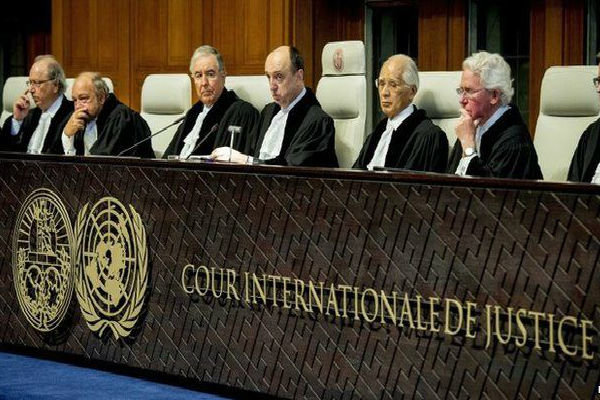ICJ starts hearing Iran’s complaint against U.S.

Iran filed a complaint against the United States with the
ICJ in June 2016, months after the U.S. Supreme Court, in a purely politically
motivated move, ruled that nearly $2 billion in frozen Iranian funds should be
awarded to families of victims of the 1983 bombing of U.S. Marine barracks in
Beirut.
Washington has been claiming the attack was orchestrated by Iran without
providing any evidence.
In the first round of oral argument that kicked off on Monday, the U.S. side
argued that the United Nations' highest judicial body doesn't have the
jurisdiction to probe the case brought by Iran.
U.S. lawyers have urged the ICJ to dismiss an Iranian lawsuit.
Monday's hearing comes a week after the 15-member panel unanimously ordered, in
a separate case, that the United States ease sanctions re-imposed on Iran
earlier this year.
Specifically, the court ordered the United States to remove those sanctions
dealing with "medicine and medical devices, food and agricultural commodities
and spare parts and equipment necessary to ensure the safety of civil aviation."
The United States immediately cried foul with John Bolton, Trump’s national
security advisor, claiming the ICJ had allowed itself to be used "as a forum for
propaganda" by Iran.
But the sanctions dispute was not the only contention made by Iran before the
ICJ. The international court also said the United States had acted illegally in
unilaterally withdrawing from the Iran nuclear accord.
The ICJ sided unanimously with Iran in its contentions regarding sanctions
against products and services necessary for humanitarian aid. The ruling also
declared that the international community viewed the reimposition of sanctions
by the United States as illegal. manoeuvre
Source:TehranTimes
















